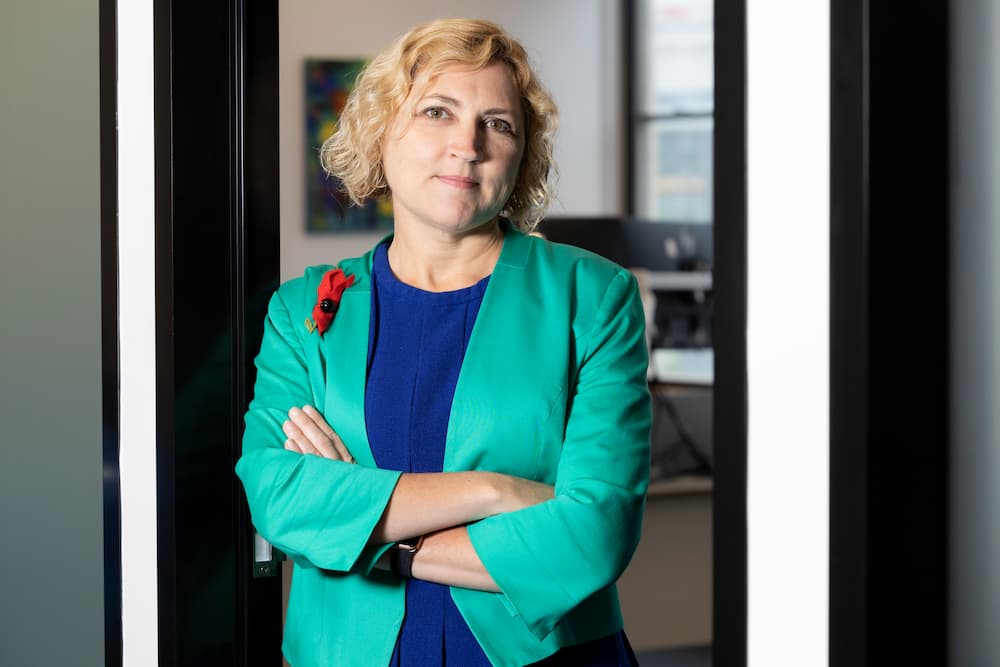Since the ACT election in last October, the new Mental Health Minister, Emma Davidson, has been working on the complexities of the portfolio to understand the service gaps and is optimistic they can be filled.
Ms Davidson said successful policy development and implementation would come from strong collaboration within community and across government departments.
“You’re going to see improvements rolling out over the next six to 12 months which will really help,” she said.
“We’re still working on it, and if we keep working on it, we will get there.”
Mental health statistics
On average, 300,000 Australians present to emergency departments with mental health issues; of those around 80% are classified as either urgent (requiring care within 30 minutes) or semi-urgent (requiring care within 60 minutes).
Data from the 2007 National Survey of Mental Health indicates 45% of Australians (8.7 million people) will have a common mental disorder in their lifetime.
Additionally, one in seven young people aged 4–17 (around 591,000) met the clinical criteria for one or more mental disorders.
Ms Davidson said she believed the coronavirus lockdown has raised the profile of mental health issues in the community and many constituents raised the topic with her during the election campaign.
“I’ve been on a few election campaigns and this was unlike anything I have seen before,” she said.
“People were really looking for opportunities and ways they could look after their neighbours and were asking how they could make sure people in their community got the care they needed.
“People were really thinking very deeply about that.
“After the year we’ve had in 2020, I don’t think you can say anything in this world is the same. The world has changed, but we have a whole ACT Government that is really committed to taking care of the community.”
ACT Government mental health priorities
Ms Davidson said her portfolio priorities included expanding the Police Ambulance Clinician Early Response (PACER) program, which replaces traditional police responses to mental health callouts with a specialised “holistic” inter-agency response.
She said the PACER program had an 82% success rate of avoiding emergency hospitalisations.
Ms Davidson said the government would provide more community counselling and mentoring for young people aged 10-25 years; increase the number of beds at Brian Hennessy rehabilitation centre for long-term mental illness and skills building; and expand the Safe Haven Café Pilot program, which fills the gap between urgent care and mental health relief not suitable for the resources of community organisations.
Mental health policy challenges
Ms Davidson acknowledged various challenges facing the ACT mental health system including medical practitioner shortages, private health insurance costs and compounding issues of physical disability, homelessness, and justice system interactions.
“We need the community to understand how interconnected these things are and how they can help us to make these things work, then we can prioritise solutions to the flow-on effects.”
The ACT Greens stand behind the “housing first principle”, an international movement calling for immediate access to a home, in the belief it is the first step in caring for an individual’s physical and mental health.
Ms Davidson said “appropriate and affordable” housing was not only an issue for mental health consumers but for attracting support workers to the region.
“We’re working hard to fill those gaps and get people trained up, but we are paddling so hard to keep our heads above water,” she said.
“Social housing is a starting point and the way in which we do that could kickstart the whole sector.”
Mental health and the justice system
Ms Davidson said she had been “spending so much time” thinking about the interaction between mental health and the justice system since joining the ACT Legislative Assembly.
She is working with ACT Greens leader Shane Rattenbury to raise the age of criminal responsibility from 10 years and, in the coming weeks, will launch a new intensive family therapy program to help get kids “back on track” before they reach the system.
“I know how they end up there,” she said.
“It’s about housing, mental health services and drug and alcohol counselling. If those things don’t work well, young people end up in the system.”
Ms Davidson said being Minister for Mental Health was like an “extension” to her previous employment in the community sector.
“The office is different, but the job is the same – to make sure people have access to what they need to live a full life.”
Creating a better future: Emma Davidson’s first speech
Emma Davidson won’t leave anyone behind
Additional $63 million to go toward ACT’s ongoing pandemic management



